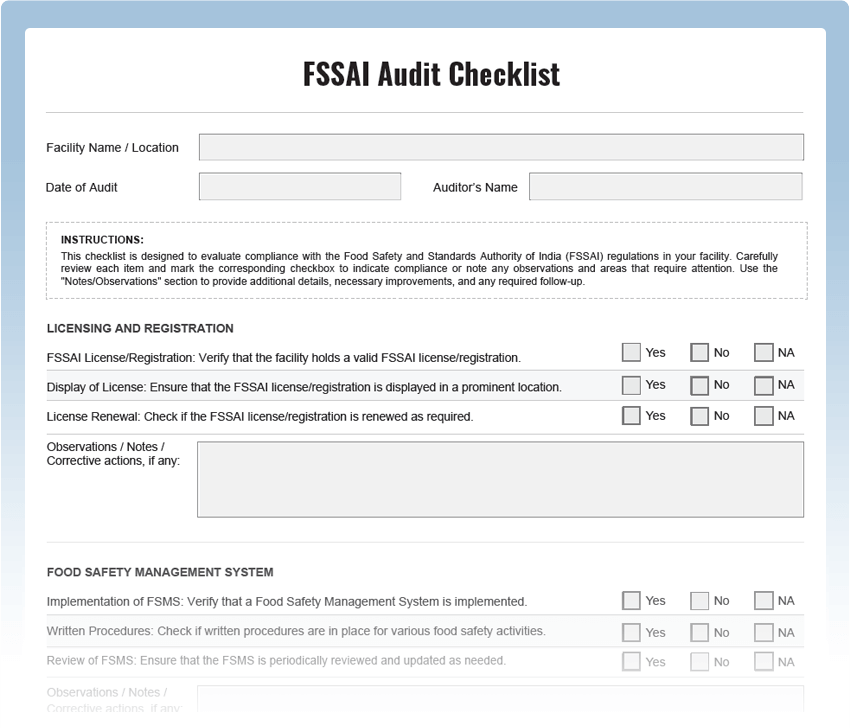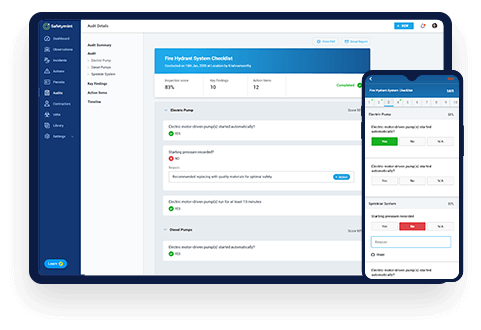FSSAI Audit Checklist
Maintain compliance with the Food Safety and Standards Authority of India (FSSAI) regulations using our comprehensive FSSAI Audit Checklist. This free PDF template covers all critical aspects of FSSAI compliance, empowering food businesses to identify areas for improvement, conduct thorough audits, and ensure the highest standards of food safety and hygiene.
Digitize this Checklist on Safetymint
- Create unlimited, customized checklists
- Add Actions, with automated reminders
- Works seamlessly with or without internet
- Access via web browsers, mobile or tablets

What is an FSSAI Audit Checklist?
An FSSAI Audit Checklist is a systematic tool used to assess the implementation of food safety and hygiene practices in accordance with FSSAI regulations. It includes a series of checkpoints designed to inspect various aspects of food safety, such as hygiene standards, labeling requirements, food storage, handling practices, documentation, and more. Regular FSSAI audits are essential for ensuring the safety and quality of food products, protecting consumer health, and meeting regulatory standards set by FSSAI.
Key Areas to Inspect in an FSSAI Audit Checklist:
- Hygiene and Sanitation: Verify compliance with hygiene and sanitation standards in the food facility.
- Food Storage and Handling: Assess proper storage and handling of raw materials and finished products.
- Labeling and Packaging: Review compliance with FSSAI labeling and packaging regulations.
- Documentation and Records: Ensure accurate and up-to-date record-keeping related to food safety practices.
- Personal Hygiene: Evaluate the adherence to personal hygiene practices by food handlers.
- Food Additives and Contaminants: Check for compliance with FSSAI standards on food additives and contaminants.
Common FSSAI Audit Findings:
Frequent issues found during FSSAI audits include:
- Poor Hygiene Practices: Inadequate sanitation and hygiene standards in the food facility.
- Non-Compliant Labeling: Incorrect or incomplete labeling on food products.
- Lack of Documentation: Missing or incomplete records related to food safety practices.
FSSAI Audit Best Practices:
- Scheduled Audits: Conduct routine FSSAI audits at planned intervals to ensure ongoing compliance.
- Training and Awareness: Provide comprehensive training on FSSAI regulations to all food handlers.
- Internal Monitoring: Implement internal checks to identify and address potential non-compliances.
- Corrective Actions: Take prompt corrective actions to rectify any identified deficiencies.




